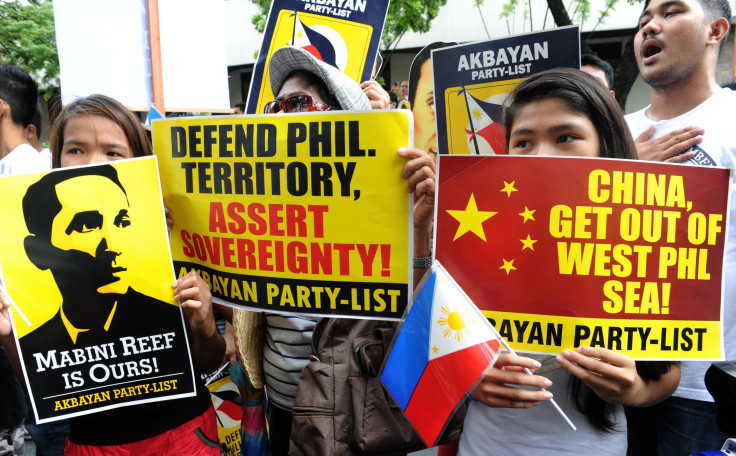South China Sea Row: US To Continue Sail-Bys, Flights, May Conduct Joint Patrol With Philippines

The U.S. ambassador to the Philippines Philip Goldberg said Wednesday that Washington may conduct joint patrols with Manila in the South China Sea and will continue to fly over and sail by the disputed region. The U.S. has, in the past, tried to establish “freedom of navigation” and has already sent planes and ships to the region, angering Beijing.
China currently claims most of the South China Sea through which over $5 trillion of world trade passes. The Philippines asked the U.S. to patrol the region after China began test flights from Fiery Cross Reef, an artificial island built by Beijing, earlier in January. Following the request, a U.S. Navy Destroyer sailed within 12 nautical miles of one of the islands claimed by China, Reuters reported. Islands in the South China Sea are currently also claimed by Vietnam, Malaysia, Brunei, the Philippines and Taiwan.
"I am not going to announce beforehand what we do in terms of freedom of navigation, but suffice it to say that the United States will follow international law, will continue to enjoy our rights under international law to sail through international waters or fly to international air space," Goldberg told reporters Wednesday, according to the Associated Press (AP).
On being asked if a proposal for a joint patrol with the Philippines had been approved, Goldberg said, according to AP: “I am not going to prejudge what we are going to do and when we are going to do it, whether we are going to do it with the Philippines or with others, but we do discuss that principle with the Philippines and so I am not discarding that possibility.”
While the U.S. says it takes no side it the dispute, it has been critical of China’s assertiveness in the region. The Philippines has also challenged China at an arbitration court in the Hague, Netherlands over the ongoing row, but Beijing has yet to recognize it.
“We seek the best possible relationship with China but we would also like to see the engagement of the entire region on solutions that are rules-based and not unilateral,” Goldberg added.
© Copyright IBTimes 2024. All rights reserved.






















